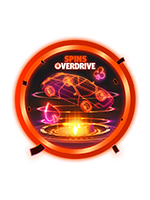How to play
Poker Psychology: guides to master the psychological aspects of poker
What do you think separates poker's elite-level players from the best of the rest? Aspects such as playing experience and bankroll size play an important role, but did you know that the number one difference between the top players and those struggling to make a name for themselves in poker is psychology and the mental side of poker?
The best players are entirely in control of their emotions, allowing them to perform to the best of their abilities continually. It does not matter if they have won a dozen cash game pots in a row, has endured the most horrific of bad beats, or are on a run of not cashing in 40 multi-table tournaments; they have the mental strength to prevent outside factors from influencing their decisions at the tables.
Knowing how to control your emotions and how to take advantage of your opponents that cannot gives you a significant advantage when playing poker online at PartyPoker or one of our live events.
This poker psychology section will arm you with the tools necessary to take your mental game to the next level by learning about various psychological aspects of poker, instilling confidence in you to help you win.

Poker tilt
Going on tilt is a term used to describe when your emotions have overwhelmed your ability to think and act clearly, resulting in you making poor, often expensive, decisions. There are several forms of poker tilt, each as potentially damaging to your bankroll as the next.
It is essential to know about each form of poker tilt, how to prevent it, and how to use an opponent's tendency to go on tilt for your gain. Our poker tilt article teaches you all this and more.

Spotting a fish
A fish in poker is generally someone with little to no experience of playing this crazy game or someone that makes frequent errors and mistakes. The polar opposite, a highly-skilled and dangerous player, is called a shark.
It is important to know how to spot a poker fish at the tables and the correct strategy to combat any you come across. On the other hand, you may be something of a fish but aspire to become a shark. Our poker fish article will help you with that, too.

The art of the bluff
Knowing how to bluff and how to spot that an opponent is bluffing you is an integral part of poker psychology. You cannot rely on always having the best hand to win a pot, nor will your opponent always have a strong hand, which is where the art of bluffing comes in.
Learn about the different types of bluff and how to combat them, in addition to discovering the features of a good bluff, the players to bluff against and when to avoid lying at all costs.

Poker tells
Have you ever noticed that some poker players seem able to deduce the exact hole cards in your possession? Do you find that your opponents regularly call your bets when your holdings are weak but fold when you are strong? They may be picking up on a poker tell.
Poker tells are involuntary actions and movements that give away the strength of your hand; your opponents are not psychic, just observant. Discover the most common poker tells, what they mean, and why they happen. Also, learn how to hide any poker tells you are giving off with our complete guide.

Poker styles
There is no correct or incorrect way to play poker; you pay your money and play how you like. Most players adopt a tight playing style (they play few hands) or one that is loose (they play many hands), but the best players can flip between two extremes at will.
Knowing the characteristics of the various poker styles is vital to your success as a poker player. Not only will you be able to figure out what kind of player your opponent is, but you can switch styles to throw those opponents off their guard and help yourself to pots you would not ordinarily be entitled to.

Staying focused
Staying focused on the task at hand is difficult for most people, not only poker players. Remaining 100% focused is challenging for online poker players because there are so many potential distractions around you at all times.
Being unable to concentrate on playing your A-Game at the poker tables is part of a recipe for disaster. You will miss crucial information and bluffing opportunities, not realise you are giving off tells, and make yourself an easy target for more observant players. Check out our tips for keeping your concentration levels high and distractions low.
If you want to improve your poker game further and learn more about the different poker rules, a range of helpful guides will help you get the better of yourself at the poker games. Check them out.
Practice with the help of our poker coach, Whizz, and improve your game!
Create Account
